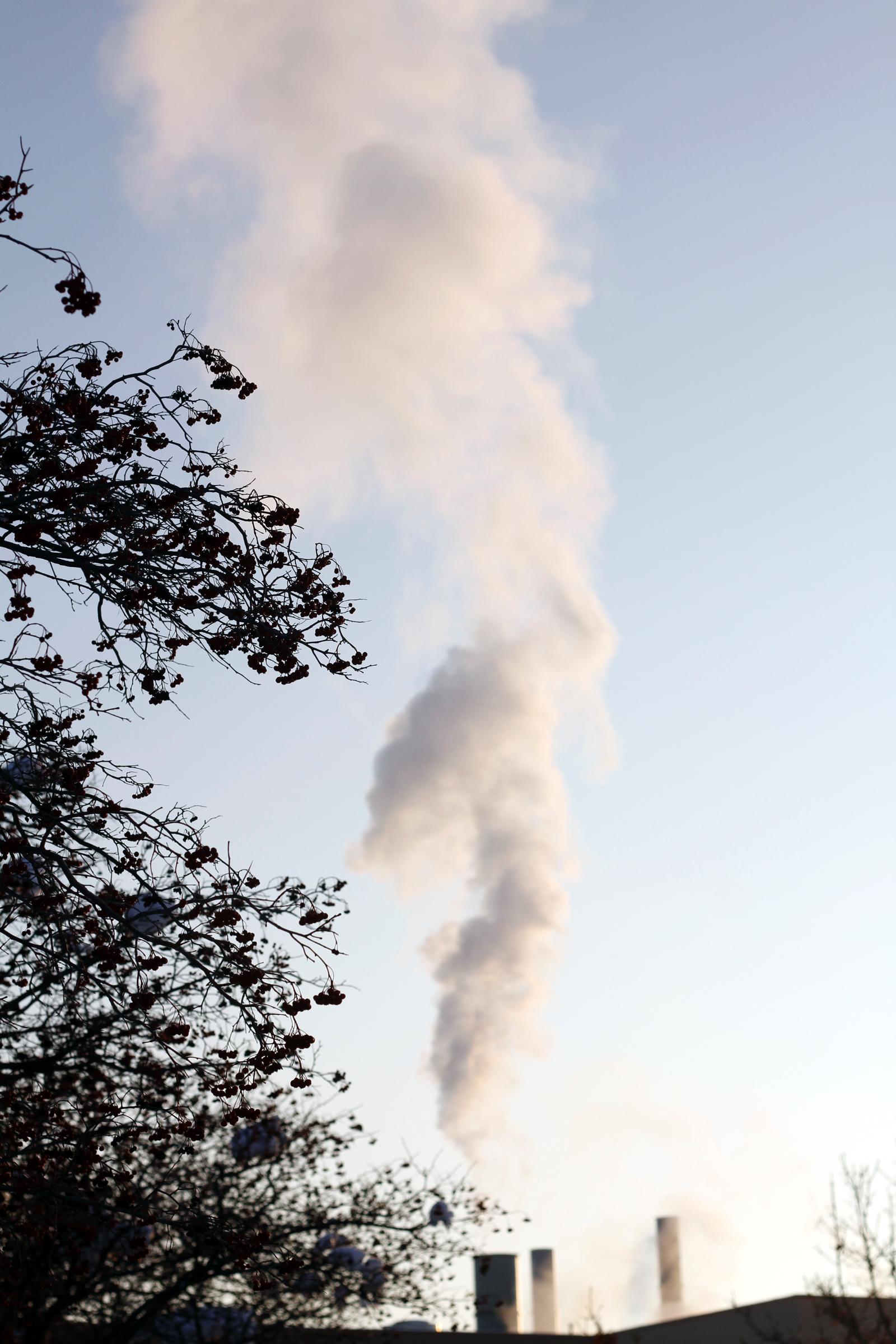USU seeks feedback on emissions reduction
Two Utah State University professors have explained the reason behind the recent Greenhouse Gas Emissions Reduction Draft Plan and their hopes regarding feedback.
Patrick Belmont, an associate professor from the watershed sciences department, has served on the Steering Committee for the Greenhouse Gas Reduction Committee for nine months. He, along with 24 other faculty members, drafted the plan.
Belmont said there were daunting reasons behind creating the plan.
“In Oct. 2018, the Intergovernmental Panel on Climate Change put out a daunting report that summarized the many, many problems that ensue if we allow global warming to exceed 1.5 degrees Celsius,” Belmont explained. “Many faculty and students were concerned and recognized that USU really needed to accelerate our own efforts. Academic institutions have been leaders in understanding the causes, implications and solutions to climate change. We know how bad it could get — and it could get really bad. So we have an obligation to lead by example. That’s why we drafted the faculty senate resolution and have worked so hard on the report.”
Belmont said the IPCC report was the “catalyzing factor,” but “since that time an even more daunting report has come out from the US Army War College.”
Belmont said he and his cohorts are asking for feedback “to raise awareness, help the campus community understand the complexity of reducing our emissions and their role in those efforts, and see if there are other ideas that we have not yet considered.”
“We’re open to all kinds of feedback,” he said. “I expect that the vast majority of faculty, staff and students will be supportive of what we are proposing. But we will consider any concerns or opposing views based on their merit.”
Belmont has great hopes for the plan.
“If implemented, I think this will be a huge benefit to USU,” he said. “The costs are actually very small and we believe it will be a huge step for USU towards a cleaner, healthier future. Beyond the environmental benefits of reducing our emissions, USU will begin to emerge as more of a leader in sustainability and that really matters to students. So I expect this will help us in recruiting and retaining students and fundraising for future efforts. And in the long run, many of the recommendations save the University money. Once we have demonstrated that we have our own carbon pollution under control, USU can be a stronger voice advocating for accelerating emissions reductions at the national and global scale, and also improving air quality right here in Cache Valley.”
Robert Davies, an associate professor in the physics department, has been working on curriculum around climate change for many years and was able to contribute to the draft plan effort.
Davies stated the direness behind the plan.
“It’s essentially impossible to overstate the extreme risk we now face, and the precarious position we’re in as a society,” he said. “We are in a state of planetary emergency and our most powerful and impactful institutions are nowhere close to behaving like it. We’re out of time for dithering. We know what to do, we must do it right now ― and this plan is the bare minimum we should be doing.”
Davies said the plan was ambitious, but not complete without the support of others.
“The draft plan is a good-faith response, on the part of the faculty and staff who drafted it, to the President’s call to formulate such a plan,” he said. “To me, it means there are a significant number of people here at USU who take this very seriously ― so much so, as to commit significant time and energy above and beyond their jobs. That said, it is just a plan. It is reasonably ambitious, but still not commensurate with the scale of the risks we’re facing. So it’s a step. A good, important step. But there will need to be others.”
Davies said he was not sure what the future holds regarding the plan.
“Often, politicians and administrators will ask for study and plans ― and then endlessly debate them ― as a means to delay taking genuine actions they know may be difficult, or difficult to sell,” he said. “I sincerely hope this has not been a delaying tactic on the part of our administrators. We will soon find out. If USU leadership choose to move forward swiftly and aggressively, this plan could mean a great deal to the university and the state. As one of Utah’s premier public institutions, and the state’s Land Grant University, I think implementing this plan immediately could be an enormously influential move.”
“One of the great problems we have right now is USU’s students are confused,” he continued. “Many sense that climate change is an enormous problem; however, they do not yet see their professors and their university behaving like it. Implementing this plan could go a long way to changing that.”
Davies said the feedback he is hoping for from students and faculty will be “enthusiastic support and swift implementation.”


It’s great to reduce emissions, but to seek punitive measures like carbon taxes and charging more for parking to employees that are barely making ends meet in the first place is really regressive.